Bar Bad Bars: Protest of Renewal
This hybrid workshop will be held on WEDNESDAY, January 29 at 6pm.
A workshop for community groups and residents of Baltimore City, especially those preparing to protest a liquor license renewal in Spring 2025
Community Law Center is CHOOSING TO SEE THE LIGHT with our Spring 2025 Campaign! Join us.
Archived Posts
These ran as a blog from 2012 to 2015. The contents are not kept updated.
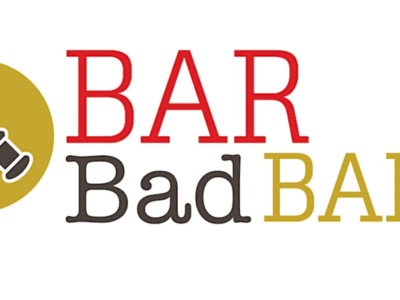
This hybrid workshop will be held on WEDNESDAY, January 29 at 6pm.
A workshop for community groups and residents of Baltimore City, especially those preparing to protest a liquor license renewal in Spring 2025
Much encouraging news for urban farmers and for boosting food security is coming out of federal legislation. The $2.3 trillion Consolidated Appropriations Act, 2021, containing the Emergency Coronavirus Relief Act of 2020, was finally signed into law on December 27th, including both emergency COVID relief as well as regular FY 2021 appropriations which shapes how …
2020 has been a huge year for SNAP benefits in Maryland, with unprecedented pandemic-related need but also because SNAP has just started being offered for online grocery shopping this year. On need: Since the beginning of the COVID-19 pandemic in March, hundreds of thousands more Maryland residents have enrolled in federal food assistance programs, according …
Community Law Center has created a new resource for those engaged in urban agriculture in Baltimore City. This manual consolidates and provides a brief overview of the laws, regulations, rules and policies involved in urban agriculture projects in Baltimore City. While not legal advice, the manual should point you in the right direction to understand …
Check out this blog post, written by a Community Law Center volunteer, about the Senate Bill authorizing a tax credit in Baltimore City for supermarkets that move into the city’s most food-insecure neighborhoods.
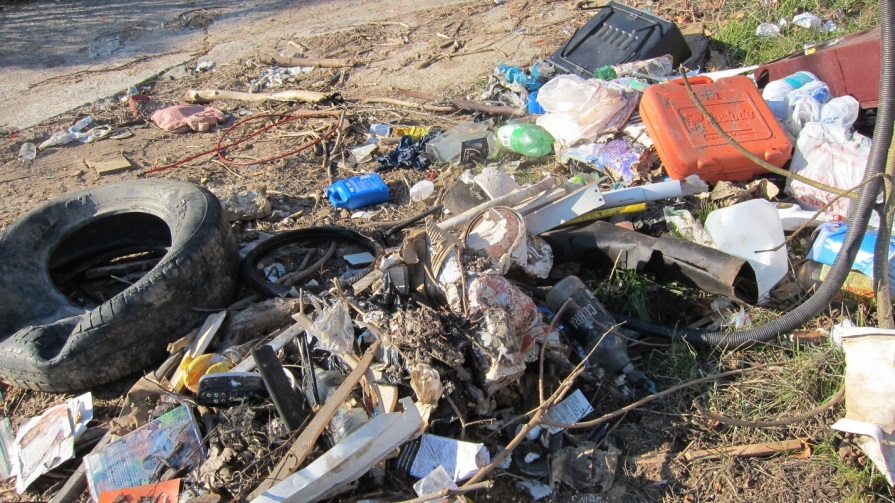
Guest Post by Robin Jacobs, Director, Strategic Legal Services Projects, Community Law Center Urban agriculture opportunities come in many forms, but perhaps one of the most prevalent ones is simply right before us: in our yards. Many people take great pride in their yards, even small yards in row home communities. Expanding access to yard …
In a public hearing before the Taxation, Finance and Economic Development Committee, members of Baltimore’s City Council heard discussion about the proposed Council Bill 14-0420 to implement an urban agriculture property tax credit. Councilmember William “Pete” Welch and others introduced the first draft of the bill, which was then referred to a number of Baltimore …
As the summer heats up and the rain continues to pour down, you may be thinking about how to cool your house and reduce rainwater runoff. Green roofs (also called living roofs) are a great option to help keep pollutants out of the city’s drain system and reduce flooding. Typical green roofs, which usually consist …
On April 5, 2014, the Maryland General Assembly passed the “Property Tax Credit – Urban Agricultural Property” bill authorizing Maryland counties and the City of Baltimore to implement a property tax credit for urban land used for agricultural purposes. The bill identifies Urban Agriculture Property to be any land larger than 1/8 acre and smaller …
On March 6, 2014, the Maryland General Assembly in both the House (HB0621) and Senate (SB0700) passed the third reading of the Registration of Pesticides Bill. This bill, which is set to go into effect of July 1, 2014, proposes financing a statewide pesticide database by charging chemical manufacturers an additional $10 (on top of …
Twenty-Second District Delegate Anne Healey introduced HB 1285, “Neonicotinoid Pesticides – Restricted Use,” in the Maryland House Environmental Matters Committee on February 7, 2014. It is a relatively short bill, proposing only to reclassify the use of neonicotinoid pesticides as “restricted use” chemicals, meaning that only “certified applicators” would be permitted to use them. The …
In February 2014, Baltimore City Councilmember Mary Pat Clarke introduced an amendment to the proposed Zoning Code Rewrite, which may have an impact on community gardens and urban farmers throughout the city. The proposed zoning code, without the amendment, provides a new name for community gardens – Community Managed Open Space (CMOS). CMOS means any …
Honey bee populations nationwide have decreased by a third each year since 2006, a phenomenon the United States Department of Agriculture (USDA) attributes in part to a phenomenon called Colony Collapse Disorder (CCD). Nearly sixty percent of Maryland’s honey bee population disappeared in winter 2013, causing scientists to question why the state’s honey bees suffer …
Food Deserts in Baltimore City In October 2013, Baltimore Mayor Stephanie Rawlings-Blake and City Health Commissioner Dr. Oxiris Barbot temporarily suspended Baltimarket, the Virtual Supermarket Program administered by the city health department. Since its launch in March 2010, Baltimarket has partnered with Santoni’s Supermarket to deliver groceries to neighborhood drop-off points. The Virtual Supermarket Program …
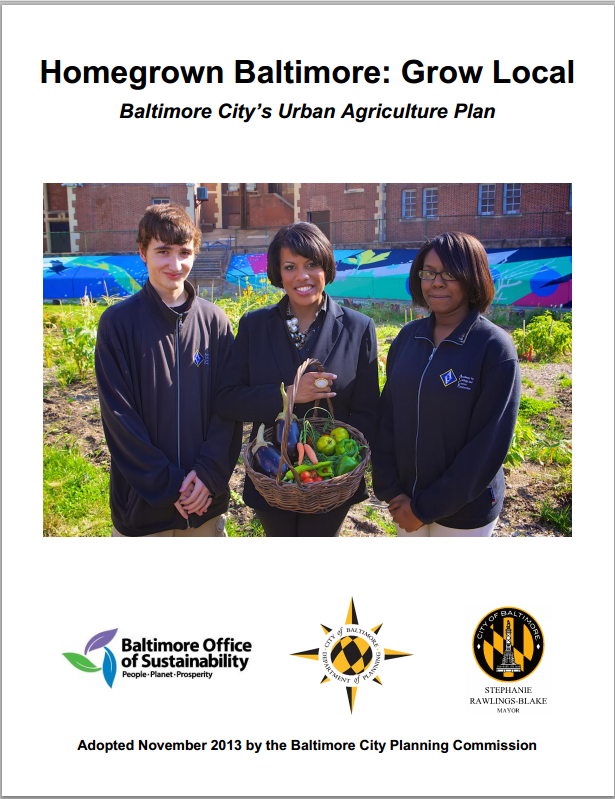
In November 2013, the Baltimore City Planning Commission adopted Baltimore City’s first urban agriculture plan. The plan’s stated purpose is “to increase the production, distribution, sales, and consumption of locally grown food within Baltimore.” Check out the text of the new urban agriculture plan, uploaded to the Baltimore Office of Sustainability’s website. The plan’s recommendations …
Baltimore City Health Department’s Animal Control Program has released the final version of their updated 2013 animal regulations. See the the final regulations here: AC Reg – Wild Exotic Hybrid Animals – September 26, 2013. A few highlights from the updated regulations, as they apply to animals commonly kept for urban agriculture/gardening purposes: Honey bees: – …

Baltimore City recently released a draft set of updated regulations for urban animal husbandry. AC Reg – Wild Exotic Hybrid Animals – August 2013 – DRAFT FOR COMMENT (3) Above is a link to the draft regulations. Comments are due to the Animal Control office of the Baltimore City Health Department by August 31, 2013. …
By now, most people with an interest in urban agriculture have seen this Ted Talk boasting over 1 million views, given by Los Angeles guerrilla gardener Ron Finley. In 2011, according to this LA Times article, Mr. Finley received a citation from the city, ordering him to remove his vegetable garden on what the city …
The Baltimore Sun recently ran an article on the city’s Adopt-A-Lot program, outlining the reasons that many believe the program provides insufficient land tenure rights for communities. Community Law Center was featured in the article as a legal resource for Maryland community groups — check it out here: http://www.baltimoresun.com/business/bs-bz-adopt-a-lot-sales-20130702,0,2116734.story. If you’d like to read the “plain …
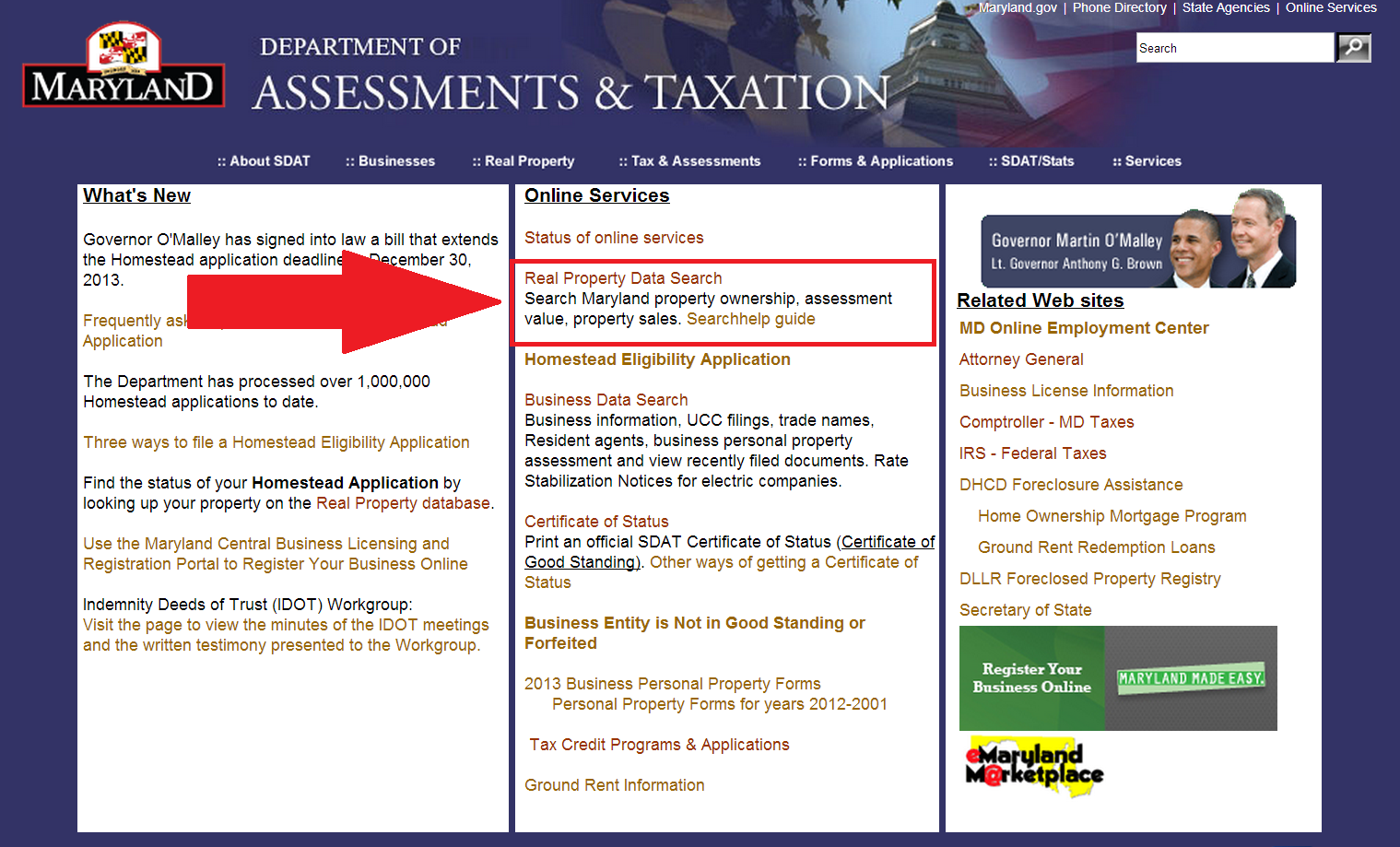
So there’s a vacant lot in your neighborhood. It’s filling up with trash, high weeds, and vermin, and you want to create a beautiful community space there instead. What do you do? Your first step should be to contact the owner of the property: here’s how to figure out the owner’s contact information. If the …
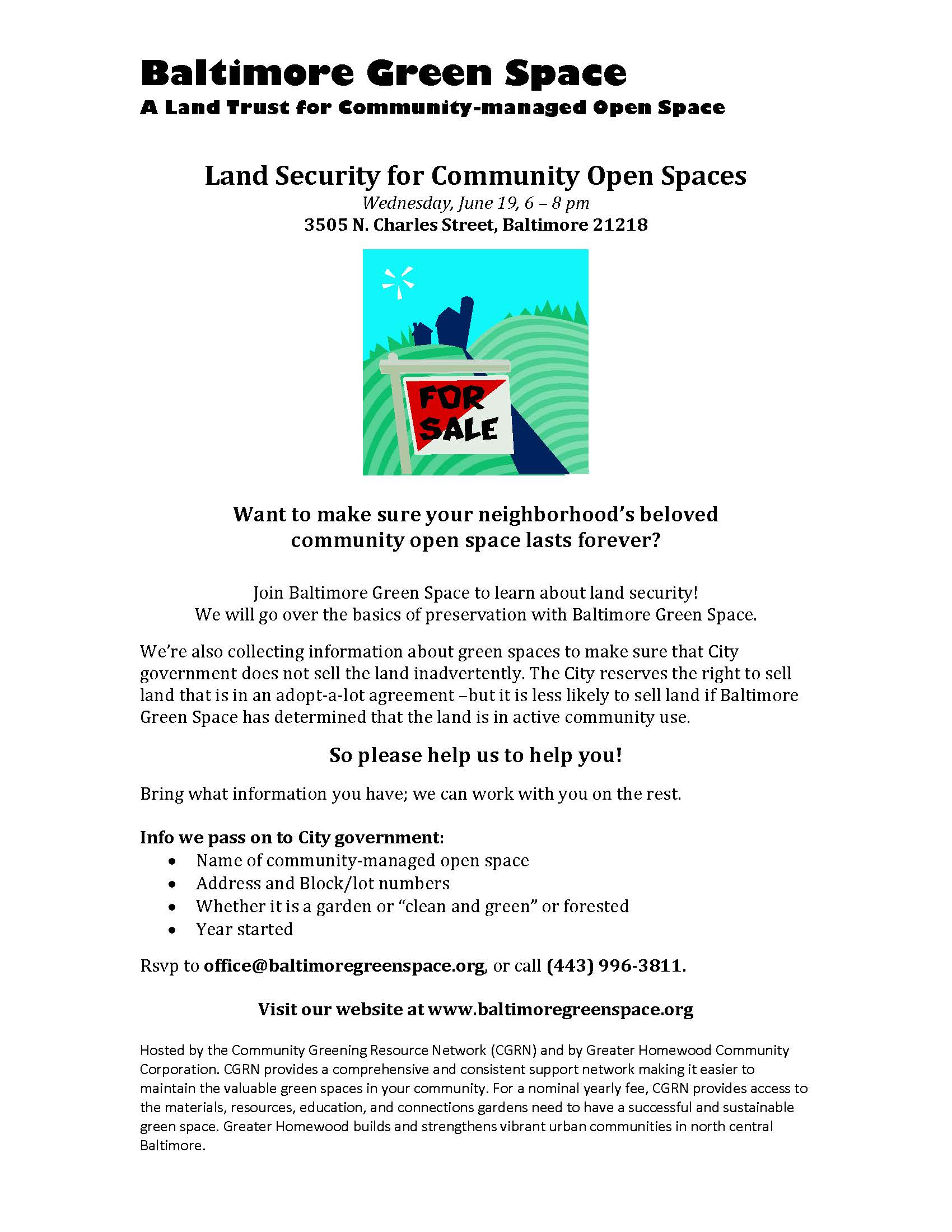
As discussed in a previous post, CLC attorneys and interns have been cross-checking Baltimore City’s Adopted Lot list against the list of properties that are currently for sale under the City’s Vacants to Value program. In the spring, CLC found over 150 adopted lots that the city was actively trying to sell through VtoV. These …
596 Acres is a New York City organization that connects individuals and community groups with vacant land. They’re creating a list of land access advocates in other cities throughout the United States, and they’re looking to add to it. http://596acres.org/en/resources/land-access-advocates-nationwide/ Beside Community Law Center’s Urban Agriculture Law Project in Baltimore, of course, which other groups …
A recent Baltimore Magazine article highlighted the new urban agriculture regulations in the proposed Baltimore City zoning code; unfortunately, the imprecise language in the article obscured the nuances of the new code, laid out in previous posts on this blog. The article states that: “[a]nother aspect of the code is creating opportunities for community gardens, which …

Recently, we have come to understand more about how Baltimore City manages its Adopt-A-Lot program; therefore, we’ve updated our Adopt-a-Lot/Power in Dirt explanation to reflect our new understanding. Adopted Lot v. Community Managed Open Space: There are two overlapping categories of lots in the Adopt-A-Lot program: adopted lots and community managed open spaces (CMOS). Community-managed …